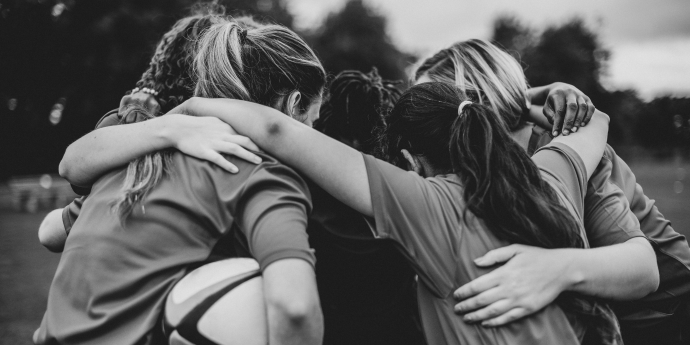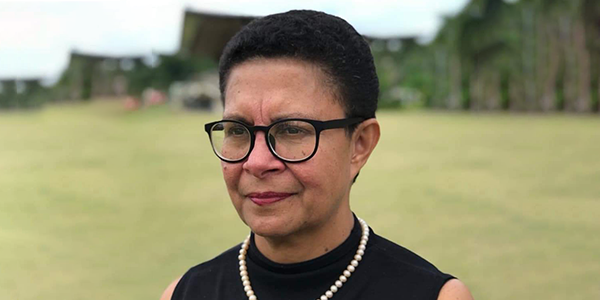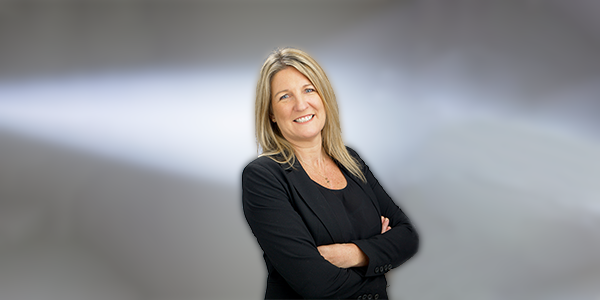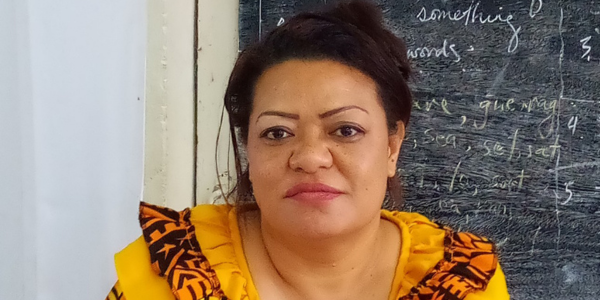The Economic Power of Gender Equality
Reasearch shows that diversity and equal roles for women delivers better results for people, for the planet and for profits.

A group of trailblazing women throughout Oceania are raising their governance game with the aim of changing the rugby establishment.
More women are slowly being appointed to rugby boards in the Pacific Island nations, but governance is not widely understood, nor practiced, says Cathy Wong, Oceania Rugby Women’s Director and representative on the World Rugby Council.
Most unions only appoint one woman to the board, Wong says, but they do not get the appropriate support and tend to resign when the going gets too hard.
A new purpose-built initiative is hoping to change all that. Named the Oceania Rise Rugby Women’s Governance and Mentoring Programme, it has been launched by the Institute of Directors and Oceania Rugby to develop expertise, improve equality and diversity, and support development and growth.

Cathy Wong
Oceania Rugby was founded in 2000 and represents the interests of 14 full members and two associate members within World Rugby, the international governing body. Its strategic plan for 2020-23 includes a focus on developing women in governance roles to ensure rugby union boards are more equitable and diverse.
Programme mentor Diane Hallifax MInstD, a director and deputy chair of the Waikato Rugby Union, says the inaugural intake is full of leaders.
“We have women in the programme who have been the ‘first’ or the ‘only’ – the first female on an all-male board; the first female in their family to become a leader in their chosen career; the only female leader in a management team; the only female in their rugby environment,” she says.
“The programme has such a wide range of participants from such varied backgrounds and the women are finding they aren’t alone. They have found others have come before them to pave the way, provide support, advice and strategies to overcome adversity and help them succeed in their environment. It will be invaluable.”
“People are appointed onto board positions without any form of governance or director training. This makes it very hard for them to understand or practise proper governance and be effective directors. Training is not readily available in the Pacific.”
The directors’ training initiative is part of the Oceania Rise Rugby Project, which is funded by PacificAus Sports. It supports the capacity building and empowerment of women in rugby across the entire Oceania region.
The IoD programme is specifically for women in leadership roles within rugby unions and will arm them with the fundamental knowledge to effectively participate in governance.
“People are appointed onto board positions without any form of governance or director training,” says Wong. “This makes it very hard for them to understand or practise proper governance and be effective directors. Training is not readily available in the Pacific.”
She says it will take two to three years before the impacts of the programme are evident as more women are increasingly qualified to put their hands up to apply for senior management, CEO or board positions. Constitutional change will also have to take place, she says.
“The challenge for us is to continue to drive this agenda and to get likeminded males to support us at board level.”
IoD chief executive Kirsten Patterson says the programme is purpose-built in that it is based on using the attendees’ experiences within their communities and Pacific values to help demystify governance.
“It is different from our usual IoD framework. The formalised learning is supported by Pacific values and a mentoring programme. We envision it as a structure that can be utilised again and again.”
Patterson says the programme also complements one of the key IoD initiatives to support governance capability within the Pacific.
Ocean Rugby general manager Frank Puletua says the long-term impact of the programme will be “immense” for the Pacific unions. “Through the uplift in skills and competencies, ambitious goals become realistic. Oceania Rugby fully supports the capacity-building of our people across the region,” he says.
“The Oceania region is unique in its cultural, political, and economic makeup and financial stability for many or our second and third tier unions is a much more challenging proposition.”

Diane Hallifax
Hallifax says there has been a significant increase of women in rugby governance in New Zealand in the past five years, but there is a long way to go. “There is increasing awareness around why we need women at the board table and how we can attract high-calibre candidates to provide a different perspective and challenge perceived norms,” she says.
There are areas that need attention and focus across Oceania, she says, depending on the maturity of the board and their diversity.
“Providing a welcoming and safe environment is critical so women can have a voice. As a standard, all board members regardless of gender, should be highly skilled in all aspects of governance, including finance, risk, compliance and strategy. A successful board is a board where everyone feels safe to speak and everyone is heard.”
With a wide range of women across Oceania participating, each one has a different perspective. “The programme will increase levels of personal and professional support and it also provides the participants with baseline governance training they can use immediately,” she says.
Hallifax says the response to the programme, supporting 24 participants, has been incredible. “Each participant has been highly engaged and just extending our networks has been invaluable. We sometimes forget how far we have come in our governance journey in rugby in New Zealand and it is privilege to work with other women from other countries and share experiences.
“The goal is to increase diversity and build governance capability in women so they can participate with confidence and have a positive impact on boards in the future. As women we need to ‘lift another woman up’ and this programme will help facilitate that and provide women with pathways through education, support and networks.”
Puletua says the existing governance framework in Oceania is largely predicated on the World Rugby model and they are seeing some great advancements in women’s rugby as a result. “As with any form of governance, this needs to be purpose-fit and regularly reviewed by relevant bodies,” he says.
“Oceania Rugby has already opened opportunities for women to have a greater voice in the strategic direction of the game. The repositioning of our constitution ensures that female representation will always remain strong moving forward, and we certainly endorse our unions to do the same.”
“The goal is to increase diversity and build governance capability in women so they can participate with confidence and have a positive impact on boards in the future.”
He says there has been a “very positive response from those fortunate enough to join the programme” and “it is a true testament to see the immediate positive impact the programme has had on participants”.
With more women joining the game than ever before, it is critical for women to have equal representation, voice and influence in decision-making roles, says Oceania Rugby women’s project officer Dr Teeny Aiken.
“Significant research has shown that women on boards bring a number of benefits,” she says. “These include more focus on non- financial performance indicators, such as customer satisfaction and diversifying audiences; improved board accountability leading to better governance; more effective risk mitigation and crisis management; higher female participation rates in other areas of the sport; increased variety of ideas, knowledge, networks and experience; and a positive boardroom and organisational culture.”
The programme, which is also supported by World Rugby, will engage three cohorts of up to 24 women (72 in total) by the end of 2024. The participants are encouraged to continue their involvement in the programme by becoming mentors to help build an alumnus within governance in the Pacific.
The progamme’s mentors come from across the region and include World Rugby Executive and Leadership Scholars. They may also undergo mentor training through the New Zealand Coaching & Mentoring Centre.
The facilitators are highly respected Pacifica directors Caren Rangi MInstD and Mele Wendt MInstD.

Ofa Langi
Rugby in Tonga has undergone dramatic change in the past few years – from being in the spotlight for all the wrong reasons to a new constitution promising better governance and gender equality.
Programme participant Ofa Langi says the door is now open in Tonga for women who dare to dream of a role in governance.
“Influential women are often visionary thinkers who can see the big picture and inspire others to believe in their vision,” she says. “They have a clear sense of purpose and direction and can communicate their goals and ideas effectively to others. More and more women and girls are now joining rugby knowing that is their future.”
Langi, a full-time teacher, says the programme has not only reinforced the benefits of teamwork and respect, but it has given her the confidence to raise her voice, where before she was silent.
“It has also helped develop my capability and the key mental skills of self-control, concentration, discipline, decision-making and good leadership.”
She says she had hardly any knowledge of accountancy and its language before the programme but now has “a fair idea of how to read and write up a financial statement”.